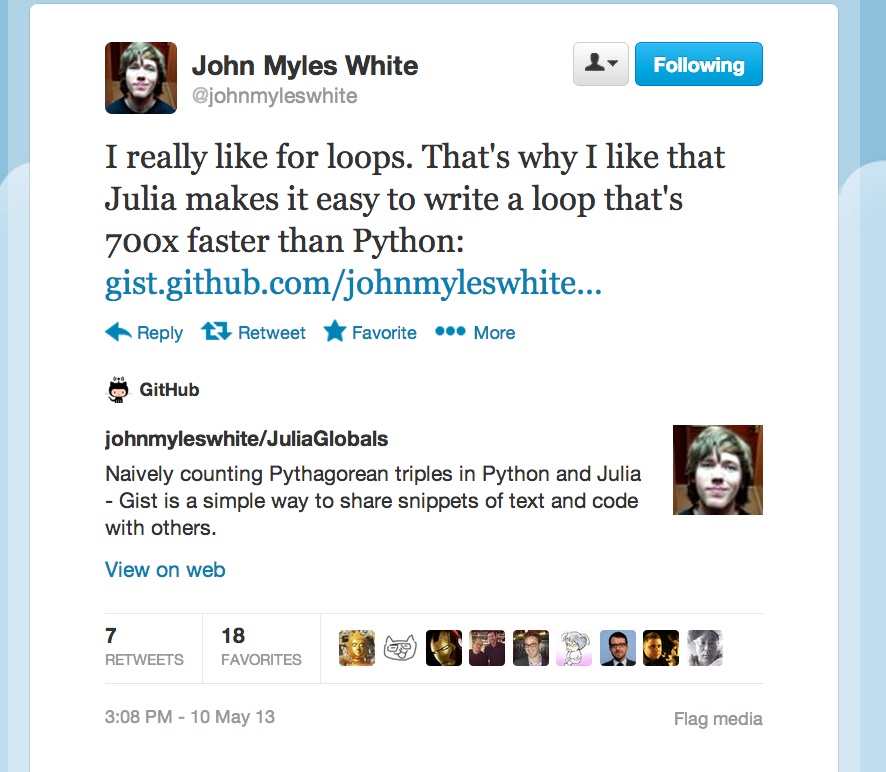A Geneva Convention for the Language Wars
I don’t tend to get too sniffy about the quality of discourse on the Internet. I have some appreciation for even the most pointless, uninformed flamewars. (And maybe my take on Web site comments is for another post.) But there’s an increasingly popular topic of articles and blog posts which is starting to annoy me a little. You’ve likely read them—they have titles like: “Python is Eating R’s Lunch,” “Why Python is Going to Take Over Data Science,” “Why Python is a Pain in the Ass and Will Never Beat R,” “Why Everyone Will Live on the Moon and Code in Julia in 5 Years,” etc.
This style of article obviously isn’t unique to data analysis languages. It’s a classic nerd flamewar, in the proud tradition of text editor wars and browser wars. Perhaps an added inflammatory agent here is the Data Science hype machine.
And that’s all okay. Go on the Internet and bitch about languages you don’t like, or tell everyone why your preferred one is awesome. That’s what the Internet’s here for. And Lord knows I’ve done it myself.
My only problem is that it ...

